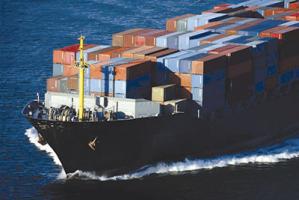 The largest-ever amount of acetic anhydride, which is used to produce heroin from opium, was seized in Pakistan by authorities.
The largest-ever amount of acetic anhydride, which is used to produce heroin from opium, was seized in Pakistan by authorities.
The chemicals, worth $5.5 million and weighing nearly 16 tons, were found in barrels labeled as paint destined for the city of Karachi by authorities at Port Qasim.
Officials from Pakistan’s anti-narcotic force, the Port Control Unit, made the seizure using profiling and intelligence-sharing techniques they had learned from the United Nations anti-drug agency’s Container Control Program.
“This record-breaking seizure shows that UN Office on Drugs and Crime can train and equip law enforcement agents to find needles in a haystack,” said the agency’s Executive Director, Antonio Maria Costa.
Nearly all global trade is transported by sea, making smuggling via containers increasingly attractive for criminals and difficult to detect. The Container Control Program seeks to boost ports’ capacities to intercept containers with illicit cargoes.
UNODC has been working with Pakistan since 2007 to strengthen their ability to disrupt the trafficking of chemicals and drugs.
The seizer in Pakistan is the latest made in ports that have taken part in the initiative, including in Costa Rica, Ecuador, Ghana, Panama, Senegal and Turkmenistan.
“We are making smuggling via containers a riskier business,” Mr. Costa stated.
The Container Control Programme is now being extended to dry posts, including those close to the Afghan border, and will be expanded into Afghanistan, Iran, Kazakhstan, Azerbaijan and Georgia.
“Pakistan’s expertise in container security has developed so well that port officials who were trained by UNODC a few years ago are now trainers for other port authorities around the world and its container terminals are regarded as models for neighbouring States,” said Ketil Ottersen, UNODC’s Senior Coordinator for the Container Control Program. (UN News)



















